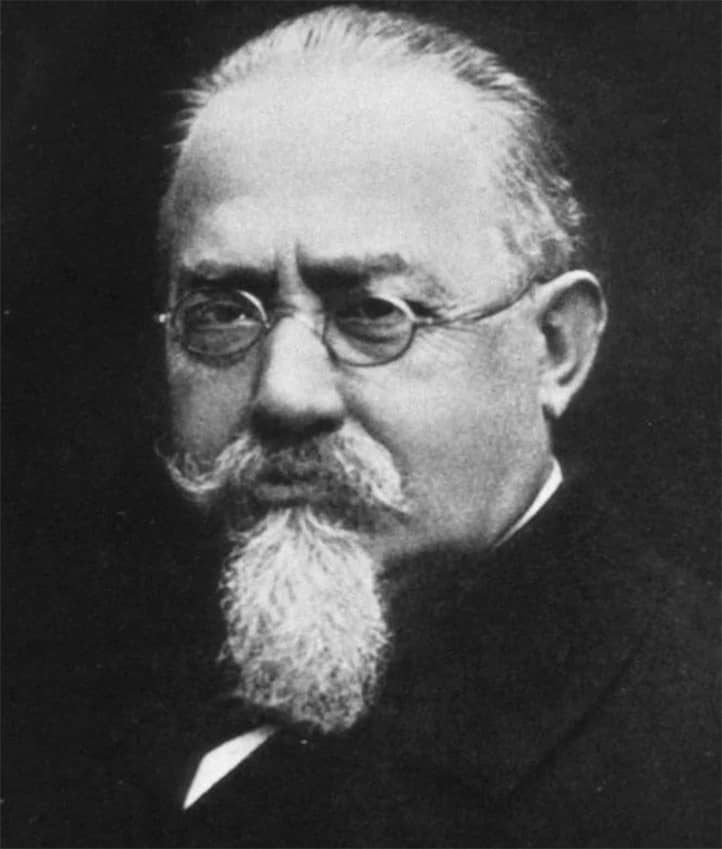Criminal psychology is a science that studies the psychological aspects of criminal behavior. It investigates how people make decisions to commit crimes, what internal motives drive them, and how external circumstances influence their actions. As a branch of psychology, criminal psychology seeks to answer important questions: why do some people become criminals while others do not, how is criminal intent formed, and what factors determine the behavior of criminals before, during, and after committing a crime.
This discipline occupies a special place among other branches of psychology as it combines knowledge about human behavior with the application of this knowledge in the field of justice. Criminal psychology is based on the principles of general, social, and abnormal psychology, while also integrating data from criminology, forensic medicine, and even sociology. It becomes an indispensable tool in understanding how the human mind works in the most complex and controversial situations.
The significance of criminal psychology cannot be overstated, as it plays a key role in combating crime. Understanding the motives and mechanisms of criminal behavior allows law enforcement agencies to investigate crimes more effectively, create psychological profiles of criminals, and even predict their future actions. This knowledge enables police officers, detectives, and investigators not only to solve committed crimes but also to prevent new ones.
Furthermore, criminal psychology makes a significant contribution to the justice system. It helps assess the mental state of suspects, determining whether their actions were conscious, and also analyzes testimonies to evaluate their credibility. Criminal psychologists also work with crime victims, providing emotional support and helping them overcome the consequences of trauma. All this makes criminal psychology not only a tool for analysis but also a means of restoring justice.
Criminal psychology is an important element in crime prevention, as knowledge about the causes of crimes and the psychological characteristics of offenders allows for the development of strategies to prevent them. Its contribution encompasses both assisting in the rehabilitation of criminals and shaping societal programs aimed at reducing crime rates. This is why this branch of psychology is so relevant and in demand in the modern world.

History of Criminal Psychology Development
Criminal psychology, as a branch of science, has deep historical roots that trace back to times when people first began analyzing the nature of criminal behavior. Its development became possible through the combination of knowledge from psychology, philosophy, law, and criminology. This discipline emerged in response to the need to understand the motives and mechanisms of individuals who commit crimes. It evolved along with society, forming the foundations for a modern understanding of how the human psyche influences unlawful actions.
Early attempts to explain criminal behavior were primarily based on religious and moral beliefs. Criminals were often considered “possessed by evil spirits” or those who had lost connection with divine laws. With the development of science, the approach to crime changed, and attention began to focus on psychological, social, and biological factors. Today, criminal psychology is not only a tool for investigating crimes but also an important resource for preventing offenses.
Origins of the Science and Early Research
The first attempts at systematic research into criminal behavior appeared in the 18th and 19th centuries. French physician Philippe Pinel was one of the first to study mental disorders that could contribute to criminal behavior. His research in psychiatry paved the way for analyzing the consciousness and mental processes of criminals.
In the second half of the 19th century, Italian criminologist Cesare Lombroso made a significant contribution to the establishment of criminal psychology. In his work “The Criminal Man,” he was the first to describe the physiological and psychological characteristics that, in his opinion, distinguished criminals from law-abiding citizens. Lombroso believed that criminal behavior could be innate and had a biological basis, and external features such as skull shape or facial expression could indicate a predisposition to crimes. Although these theories were later disproven, they spurred further study of the psychological aspects of criminality.
At the end of the 19th century, psychological analysis of criminal behavior began to emerge. German psychologist Wilhelm Wundt founded the first laboratory of experimental psychology, where he studied the psychophysiological reactions of people. His work inspired other scientists to study the cognitive and emotional processes underlying criminal behavior.
Notable Figures Who Influenced the Field
Among the prominent figures who made significant contributions to the development of criminal psychology, Austrian psychoanalyst Sigmund Freud stands out. His theories about the unconscious, drives, and conflicts between the id, ego, and superego provided explanations for many aspects of criminal motivation. Freud believed that crimes could result from inner struggles between forbidden desires and social norms.
Another important figure is American psychologist Hans Eysenck, who studied the connection between personality traits and the propensity for deviant behavior. His theory of extraversion, neuroticism, and psychoticism helped to understand how personality characteristics could influence criminality.
Robert Ressler, a former FBI agent, also played a key role in the development of modern criminal psychology. He developed the methodology for criminal profiling, which allows the creation of psychological portraits based on crime analysis. His work took criminal psychology to a new level and made it indispensable in investigating serial crimes.
Thanks to the efforts of these and many other researchers, criminal psychology has become an interdisciplinary field that continues to evolve and significantly contributes to understanding human behavior and combating crime.

Key Aspects of Criminal Psychology
Criminal psychology is a multifaceted discipline that examines the complex interconnections between personality psychology, social conditions, and criminal behavior. Its main goal is to uncover the internal motives and mechanisms that drive individuals to commit unlawful acts. Understanding these processes not only allows for the identification of criminals but also for developing strategies for their rehabilitation and preventing repeat offenses.
At the core of criminal psychology are motivation, emotions and behavioral patterns that manifest both during the preparation for a crime and its execution. These elements allow for building models of criminal behavior and analyzing why some people are prone to unlawful actions while others are not.
To achieve its goals, criminal psychology employs a variety of research methods. Among them are in-depth interviews, which allow for delving into the minds of criminals; psychological testing, which helps evaluate personality traits; and crime analysis, which identifies patterns in offenders’ behavior.
What Does Criminal Psychology Study?
Criminal psychology focuses on analyzing the internal factors that drive a person to crime. Motivation is a key aspect of this analysis, as understanding why a person commits a crime helps to determine their intentions and the likelihood of repeating such actions in the future. For instance, some crimes may be committed due to financial difficulties, others due to feelings of revenge, fear, or even pleasure derived from breaking norms.
Emotions play an important role in shaping criminal behavior. Some people commit crimes under the influence of anger, fear, or depression, while others feel indifference or even satisfaction. Criminal psychology studies these emotional states, seeking to understand how they affect decision-making in stressful or extreme conditions.
Behavioral patterns of criminals are another important aspect. Criminal psychologists analyze actions that are repeated during crimes, such as the choice of crime location, methods of avoiding responsibility, or the nature of interaction with victims. These data allow for creating profiles that help law enforcement identify potential criminals or their next steps.
Research Methods
Research methods in criminal psychology are key to collecting and analyzing data about criminals. One of the main methods is in-depth interviews. This approach involves detailed questioning of suspects, witnesses, or crime victims to uncover their thoughts, feelings, and motives. Psychologists ask open-ended questions, observe reactions, and analyze responses to gather as much information as possible.
Psychological testing also plays an important role. Using specialized tests such as the MMPI (Minnesota Multiphasic Personality Inventory) allows for determining levels of aggression, emotional stability, or risk propensity. These tests help to understand which personality traits may contribute to criminal behavior.
Crime analysis is another important method. Criminal psychologists study the details of crime scenes, the method of committing the crime, and the traces left by the criminal. For example, the choice of location and time can indicate the level of preparation of the criminal, while the method of interaction with the victim can reveal their emotional state or motives. This method also allows for determining whether a crime is spontaneous or well-planned.
Thus, by combining the analysis of motivation, emotions, and behavior with effective research methods, criminal psychology provides deeper insights into the nature of crimes and their perpetrators, aiding in combating crime and ensuring justice.

Profiling: A Tool of Criminal Psychology
Profiling is one of the most powerful tools used in criminal psychology for solving crimes. It is a technique that allows creating a psychological portrait of an offender based on the analysis of their actions, motives, and behavioral patterns. Using data from the crime scene, information about the victims, and the circumstances of the crime, psychologists help law enforcement narrow down the list of suspects and predict the offender’s next moves.
The role of profiling is not only to determine the personality traits of the offender but also to understand how and why they committed the crime. This tool is particularly effective in investigating serial crimes, where distinct behavioral patterns can be identified. Profiling helps law enforcement save time and resources by focusing on specific characteristics of a suspect.
The methodology of profiling became popular due to numerous successful cases demonstrating its effectiveness. It continues to evolve by integrating modern technologies such as big data analysis and artificial intelligence algorithms.
What Is Profiling?
Profiling is a systematic process of analyzing crimes and their circumstances to create a psychological portrait of the offender. Its goal is to identify key personality traits, habits, lifestyle, and even possible motives of the perpetrator. Profiling is based on the assumption that an offender’s behavior at the crime scene reflects their inner world, emotional state, and thinking style.
This methodology first gained popularity in the 1970s thanks to the work of FBI agents Robert Ressler and John Douglas. They began systematizing information about serial offenders and developing algorithms for their identification. Since then, profiling has become an integral part of investigations in many countries around the world.
How Is a Psychological Portrait of an Offender Created?
The process of building a psychological portrait of an offender involves several stages:
- Data Collection: All available facts about the crime are analyzed—location, time, method of execution, victim selection, traces left, and other details. Information is gathered from reports, witness statements, forensic findings, and video recordings.
- Victim Study: Particular attention is paid to the victim’s characteristics, as the choice of a specific person often reflects the offender’s motives. Social status, behavior, and interactions with others are analyzed.
- Behavior Interpretation: The offender often leaves a “signature” at the crime scene—unique actions they repeat. For example, this could be specific ways of inflicting harm, manner of contact with the victim, or choice of location. These details help understand the emotional state and motives of the perpetrator.
- Profile Construction: Based on the collected data, hypotheses about the offender’s age, gender, education level, social status, mental state, and other characteristics are formulated.
- Prediction: Likely future actions of the offender are determined. This helps prevent repeat crimes and increases the efficiency of operational measures.
Examples of Successful Application
One of the most well-known examples of successful profiling is the case of serial killer Ted Bundy. Psychologists helped determine that the offender had an attractive appearance, high intelligence, and used manipulative techniques to gain victims’ trust. This information narrowed down the list of suspects, ultimately leading to his capture.
Another example is the case of the so-called “Zodiac Killer,” a serial murderer in the United States. Profiling helped law enforcement understand that the offender derived satisfaction from media attention and was inclined toward complex ciphers and intellectual games. Although their identity remains unknown, the profile helped avoid some false leads.
In the United Kingdom, profiling was instrumental in identifying serial rapist Peter Sutcliffe, known as the “Yorkshire Ripper.” Psychologists analyzing his actions determined that he had a complex emotional state tied to deep internal conflicts, which was crucial to his exposure.
Thus, profiling is an indispensable tool in criminal psychology. It not only aids in solving crimes but also prevents them, contributing to public safety.

Criminal Psychology and Law Enforcement
Criminal psychology plays a significant role in law enforcement by contributing to the effective investigation of crimes, evaluating suspects’ behavior, and aiding in judicial decisions. Specialists in this field work closely with police, lawyers, judges, and other participants in the process, providing in-depth analysis of the psychological aspects of each case.
The involvement of psychologists in law enforcement is becoming increasingly relevant as many crimes have deep psychological roots. Understanding the motives and emotional state of an offender allows for a better understanding of their actions and predicting possible behavior. Additionally, criminal psychologists play a key role in court proceedings by providing expert opinions that help determine responsibility and the credibility of testimonies.
The modern law enforcement system increasingly integrates psychology into its processes, improving investigation methods and decision-making. Psychologists not only analyze specific cases but also develop strategies for crime prevention, enhancing overall societal safety.
Psychologists’ Role in Investigations
Criminal psychologists are actively involved in investigations at all stages. Their involvement begins with analyzing the crime and the suspect’s behavior. They help the police understand how and why the crime was committed, based on which they create the perpetrator’s psychological profile.
In serial crime investigations, psychologists use profiling to identify common traits between cases and establish the possible identity of the offender. They also analyze crime scenes, execution methods, and interactions between the offender and the victim. For example, communication style may indicate intelligence level, while victim selection may point to emotional or social issues.
Psychologists work directly with suspects, conducting interviews to uncover their motives, stress levels, and awareness of their actions. They also participate in interrogations, helping investigators devise effective interaction strategies to elicit truthful information.
Moreover, criminal psychologists collaborate with victims and witnesses, helping them overcome stress and articulate their testimonies clearly. This aspect is critically important, especially in cases where traumatic experiences may affect the ability to provide accurate information.
Role of Experts in Court
In judicial practice, criminal psychologists act as experts whose conclusions can be decisive in decision-making. One of the key tasks of experts is assessing the mental state of the offender. They determine whether the person was capable of understanding their actions at the time of the crime and whether mental disorders or other factors influenced their behavior.
Assessing the offender’s state also includes analyzing their capacity for rehabilitation. Psychologists provide recommendations on whether the offender can be socially readapted, which may impact sentencing. For example, individuals with severe mental disorders may be directed to treatment instead of imprisonment.
Another important aspect of psychologists’ work in court is analyzing testimonies. They evaluate the credibility of testimonies, taking into account the emotional state of witnesses or victims. For instance, testimonies given under the influence of fear may be distorted. Expert analysis helps the court consider these nuances when making decisions.
Additionally, psychologists help unravel complex motivational aspects of the crime, which may be unclear to other participants in the process. Their contribution ensures a deeper understanding of the situation, facilitating fair justice.
Thus, the involvement of criminal psychologists in investigations and court proceedings is indispensable. They not only assist in solving crimes but also contribute to the creation of a more effective and humane justice system.

Criminal Psychology and Crime Prevention
Criminal psychology is not limited to investigating crimes and working in court. An important area of this field is crime prevention — preventing potential offenses through a deep understanding of behavioral and psychological aspects of criminality. Knowledge about motives, emotional states, and behavioral patterns of criminals allows the development of effective strategies to prevent crimes and reduce recidivism.
Criminal psychologists collaborate with law enforcement agencies, social services, educational institutions, and other organizations to create prevention systems aimed at identifying and neutralizing potential risks. An important element of this process is working with offenders to change their behavior and help them adapt to society.
How Does Knowledge of Criminal Behavior Help Prevent Crimes?
Understanding the psychological characteristics of criminals enables the identification of potentially dangerous individuals before they commit crimes. For example, studying early signs of aggression, deviant behavior, or tendencies to manipulate can help psychologists and educators intervene in a timely manner. This is particularly relevant when working with adolescents at risk.
Criminal psychologists analyze crime statistics to determine general trends, such as the prevalence of specific types of crimes in certain regions or social groups. This allows law enforcement to work more effectively on prevention. For instance, if statistics show a high rate of juvenile crime in a specific area, mentoring programs, sports activities, or educational seminars can be initiated to engage youth in positive activities.
In addition to working with potential offenders, knowledge of their behavior is used to improve the safety of public spaces. For example, information about factors that attract criminals (poor lighting, lack of surveillance cameras, etc.) helps in urban planning and the creation of safer environments.
Using Psychology for the Rehabilitation of Offenders
A separate area in crime prevention is working with individuals who have already committed offenses. Rehabilitating such individuals is a key step in preventing repeat crimes. Criminal psychologists use various methods to change offenders’ thinking, behavior, and motivation, helping them integrate into society.
Rehabilitation programs may include:
- Cognitive-behavioral therapy (CBT): This method helps offenders become aware of their destructive thoughts and replace them with constructive ones. For example, someone who believes violence is the only way to resolve conflicts learns alternative approaches.
- Group therapy: Interacting with others who have similar experiences fosters emotional support and strengthens social connections.
- Working on emotional intelligence: Many offenders lack the ability to control their emotions or express them appropriately. Developing this skill helps avoid impulsive behavior.
- Socioeconomic adaptation: Offenders often face difficulties in finding work or establishing normal relationships in society. Psychologists work to teach them necessary skills such as negotiation, decision-making, and time management.
An essential aspect of rehabilitation is post-release support. Mentoring programs, professional training, and psychological counseling help former offenders reintegrate into normal life.
Thus, criminal psychology plays a crucial role in crime prevention. It not only helps prevent crimes but also contributes to the social rehabilitation of offenders, creating the conditions for reducing recidivism and improving public safety.

Psychological Aspects of Working with Crime Victims
Victims of crimes often face serious emotional and psychological consequences that affect their daily lives and ability to recover from traumatic experiences. Criminal psychology plays an important role in supporting such individuals, helping them understand their feelings, cope with stress, and restore emotional balance.
Working with crime victims requires a high level of empathy, professionalism, and a deep understanding of the psychological mechanisms affecting their state. Psychologists use various methods to ensure an individual approach to each person, considering the specifics of the trauma experienced, the degree of emotional impact, and the social context. The main goals of this work are to help overcome post-traumatic stress disorder (PTSD), reduce anxiety, and restore a sense of security.
How Does Criminal Psychology Help Understand and Support Victims?
One of the main tasks of criminal psychology is analyzing the psychological state of crime victims. This helps identify how trauma has affected their psyche, behavior, and perception of the world. For example, victims of violent crimes often experience intense fear, distrust of others, emotional instability, and social isolation. Understanding these aspects allows for the development of the right support strategy.
Psychologists help victims understand that their reactions to trauma are normal and natural. For example, persistent memories of the event, nightmares, or avoidance of certain situations are typical manifestations of traumatic experiences. Recognizing this reduces self-blame and helps build trust between the psychologist and the victim.
Moreover, criminal psychology contributes to the creation of support programs focused on victims. These can include group or individual counseling, where people have the opportunity to share their experiences and receive the necessary help. Group therapy, for instance, enables victims to feel part of a community that understands them, reducing feelings of isolation.
The Role of Psychologists in Restoring Emotional Balance
A key aspect of working with victims is restoring their emotional balance, which includes reducing stress levels, addressing feelings of guilt and fear, and developing new coping mechanisms.
- Overcoming post-traumatic stress disorder (PTSD): Crime victims often suffer from PTSD, characterized by recurring memories of the event, hyper-anxiety, and avoidance of triggers that remind them of the trauma. Psychologists use cognitive-behavioral therapy (CBT) methods to help victims change negative thoughts and reduce the impact of traumatic memories. For instance, cognitive restructuring helps replace feelings of guilt with an understanding of the reality of the events, where the victim could not control the situation.
- Developing a sense of safety: Trauma often destroys the basic sense of safety. Psychologists work to help victims regain control over their lives. This may include teaching relaxation techniques, such as breathing exercises or meditation, which help reduce anxiety levels.
- Social adaptation: Many crime victims face difficulties returning to normal life due to fear and distrust. Psychologists help them gradually restore social contacts, maintain relationships with loved ones, and avoid self-isolation. This includes working on rebuilding confidence and setting new goals.
- Emotional recovery work: Psychologists help victims express their emotions, such as anger, sadness, or fear, in a safe environment. This reduces the risk of developing depression or chronic stress.
In many cases, the work of psychologists with crime victims becomes not only a tool for emotional rehabilitation but also an important step toward restoring justice. Victims who receive psychological support are more likely to cooperate with law enforcement and testify in court.
Thus, the psychological aspects of working with crime victims cover a wide range of tasks — from a deep analysis of their state to creating conditions for complete emotional and social recovery. Criminal psychology provides a comprehensive approach to assistance, aimed at helping victims return to normal life and minimizing the negative consequences of their traumatic experiences.

Interesting Facts and Cases
Criminal psychology is not only a science but also a fascinating field that allows us to delve into the darkest corners of the human mind. Thanks to this discipline, numerous high-profile crimes have been solved, and the names of some criminal psychologists have become legendary due to their contributions to justice. Understanding criminal motivations, analyzing their behavior, and deeply comprehending psychological patterns have helped not only to catch perpetrators but also to prevent future tragedies.
Each case involving criminal psychology is not only a story of successful investigation but also an example of how a scientific approach can be decisive in the most challenging situations. From analyzing letters of serial killers to creating psychological profiles based on minimal data, these methods continuously prove their effectiveness.
Famous Crimes Solved Thanks to Criminal Psychology
One of the most striking examples is the investigation of the series of murders committed by Theodore (Ted) Bundy. This serial killer terrorized the United States in the 1970s. Although Bundy appeared charismatic and attractive, his crimes were brutal and cold-blooded. Criminal psychologists created a detailed psychological profile based on survivor testimonies and crime scene analyses. This profile enabled law enforcement to narrow down the suspects and eventually capture him.
Another iconic case is the “Unabomber,” Theodore Kaczynski, who mailed explosive devices over nearly two decades. Only through the analysis of his manifesto were psychologists able to identify his unique mindset, linguistic patterns, and ideological beliefs. These findings helped the FBI identify the perpetrator and end his reign of terror.
Real-Life Examples of Famous Criminal Psychologists
One of the most renowned criminal psychologists of our time is Dr. Paul Britton from the UK. He has helped solve many high-profile cases using profiling methods. Britton noted the importance of not only analyzing crime scenes but also “feeling” their atmosphere, which he refers to as the skill of “reading a crime.”
Another distinguished expert is Dr. Robert Ressler, an FBI agent and one of the pioneers of profiling. He coined the term “serial killer.” Ressler was involved in investigations of infamous criminals such as Jeffrey Dahmer and John Wayne Gacy. His methodology included in-depth interviews with incarcerated offenders, which helped build a database of behavioral patterns.
Dr. Elizabeth Loftus, a psychologist and researcher, is known for her work on witness memory. Her studies have shown that human memory is highly malleable, and recollections can be distorted or even fabricated under external influences. Her findings have been used numerous times to defend wrongfully accused individuals.
The knowledge gained from these and other eminent criminal psychologists has not only advanced investigations but also contributed to the development of the science as a whole. Their experiences inspire new generations of researchers who aim to make the world a safer place.
These facts and cases vividly demonstrate that criminal psychology plays a key role in solving crimes and restoring justice. It stands at the intersection of science, psychology, and justice, proving that deep understanding of human nature can change lives and society.

Conclusions
Criminal psychology continues to evolve, adapting to modern challenges and societal changes. The integration of cutting-edge technologies, such as artificial intelligence, machine learning, and big data analysis, opens new horizons for this science. These tools allow for more accurate predictions of criminal behavior, identification of potential risks, and optimization of investigative processes. For example, analyzing digital footprints, such as online activity or social media communications, is becoming crucial in modern criminal investigations.
Alongside technological advancements, new ethical challenges arise. Working with suspects and victims requires not only professionalism but also strict adherence to moral principles. Issues of confidentiality, using psychological analysis without consent, and the ethics of profiling to prevent crimes remain subjects of debate. It is crucial to maintain a balance between protecting human rights and the interests of justice to ensure that criminal psychology remains a tool of fairness rather than manipulation.
The importance of this field to society cannot be overstated. Criminal psychology provides better insights into the motivations and behaviors of offenders, aiding in the successful resolution of crimes and the prevention of offenses. It helps crime victims overcome trauma, return to normal life, and find a sense of justice. Its contributions to the justice system are invaluable, as psychological studies provide courts with more precise information about the mental states of defendants and witnesses, enhancing the objectivity of decisions.
The future of criminal psychology is closely tied to the globalization of crime and the emergence of its new forms. Cybercrime, international terrorism, and organized crime demand innovative approaches to analysis and prevention. At the same time, an essential task is to train specialists who can adapt to these changes and work effectively in multicultural environments.
Criminal psychology is not just a science about past crimes but also a key to the future of justice. Its ability to combine traditional methods of analysis with innovative approaches makes it a vital tool for ensuring societal safety. A deeper understanding of human behavior, combined with modern technologies, paves the way for creating more effective justice systems that not only punish but also prevent crimes, restore justice, and maintain social balance.
Recommended Literature
- “Mindhunter: Inside the FBI’s Elite Serial Crime Unit” – Authors: John E. Douglas and Mark Olshaker. In this book, former FBI agent John Douglas discusses the development of profiling and the analysis of serial criminals’ behavior.
- “Criminal Shadows: Inside the Mind of the Serial Killer” – Author: David Canter. The British psychologist reveals methods of geographical profiling and crime scene analysis.
- “The Psychology of Criminal Conduct” – Authors: James Bonta and D.A. Andrews. An academic approach to understanding the psychological aspects of criminal behavior.
- “Without Conscience: The Disturbing World of the Psychopaths Among Us” – Author: Robert D. Hare. A study of psychopathy and its impact on criminal behavior.
- “The Criminal Personality: A Profile for Change” – Authors: Samuel Yochelson and Stanton Samenow. A trilogy analyzing criminals’ thinking and behavior.
- “Inside the Criminal Mind” – Author: Stanton Samenow. A deep analysis of criminals’ psychology and thought processes.
- “Profiling Violent Crimes: An Investigative Tool” – Authors: Ronald M. Holmes and Stephen T. Holmes. A guide to profiling methods for investigating violent crimes.




